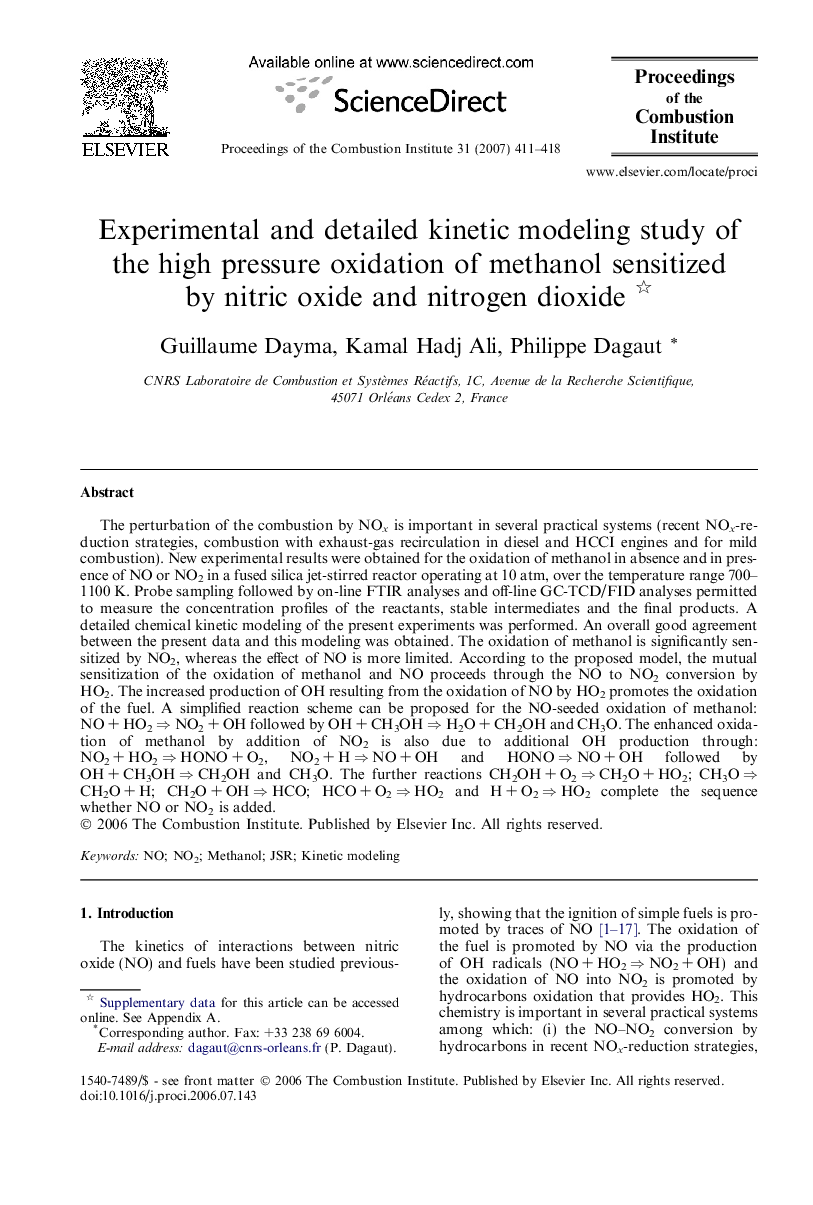| Article ID | Journal | Published Year | Pages | File Type |
|---|---|---|---|---|
| 240745 | Proceedings of the Combustion Institute | 2007 | 8 Pages |
The perturbation of the combustion by NOx is important in several practical systems (recent NOx-reduction strategies, combustion with exhaust-gas recirculation in diesel and HCCI engines and for mild combustion). New experimental results were obtained for the oxidation of methanol in absence and in presence of NO or NO2 in a fused silica jet-stirred reactor operating at 10 atm, over the temperature range 700–1100 K. Probe sampling followed by on-line FTIR analyses and off-line GC-TCD/FID analyses permitted to measure the concentration profiles of the reactants, stable intermediates and the final products. A detailed chemical kinetic modeling of the present experiments was performed. An overall good agreement between the present data and this modeling was obtained. The oxidation of methanol is significantly sensitized by NO2, whereas the effect of NO is more limited. According to the proposed model, the mutual sensitization of the oxidation of methanol and NO proceeds through the NO to NO2 conversion by HO2. The increased production of OH resulting from the oxidation of NO by HO2 promotes the oxidation of the fuel. A simplified reaction scheme can be proposed for the NO-seeded oxidation of methanol: NO + HO2 ⇒ NO2 + OH followed by OH + CH3OH ⇒ H2O + CH2OH and CH3O. The enhanced oxidation of methanol by addition of NO2 is also due to additional OH production through: NO2 + HO2 ⇒ HONO + O2, NO2 + H ⇒ NO + OH and HONO ⇒ NO + OH followed by OH + CH3OH ⇒ CH2OH and CH3O. The further reactions CH2OH + O2 ⇒ CH2O + HO2; CH3O ⇒ CH2O + H; CH2O + OH ⇒ HCO; HCO + O2 ⇒ HO2 and H + O2 ⇒ HO2 complete the sequence whether NO or NO2 is added.
